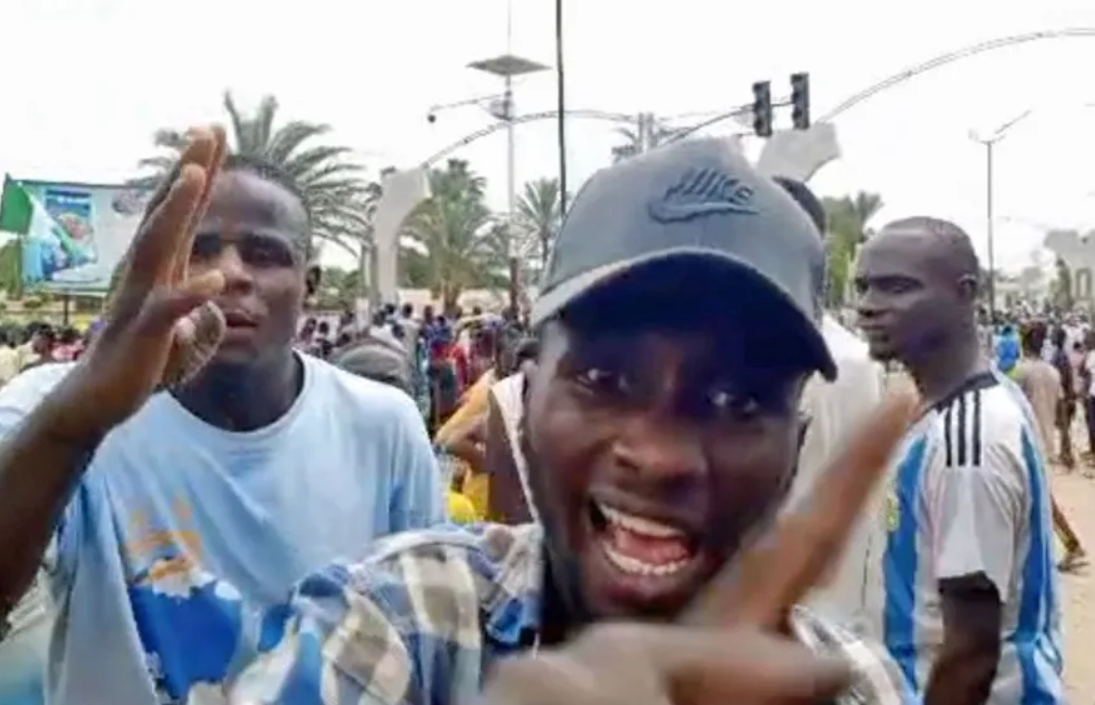Protesters and Police Engage in Clash Over Nigeria’s Rising Cost of Living
The skyrocketing cost of living in Kano, Nigeria, has prompted thousands of protesters to take to the streets, and the police have retaliated with tear gas and live bullets. Businesses around the country have closed their doors as a result of the unrest, and demonstrators in big cities have been shouting things like “We are hungry” to express their displeasure.
Protesters in Kano, the scene of the demonstrations, ratcheted up emotions by setting tires on fire outside the governor’s home. The cops retaliated by opening fire, which sent four people to the hospital. The coordinated social media protests are modeled after the successful demonstrations that forced the Kenyan government to drop tax hike plans.
Protesters in Kano have remained resolute on the streets, demanding their demands even after police used hot water cannons. Looting has apparently broken out as a result of the upheaval; a warehouse close to the governor’s residence reportedly fell victim to the raid. The terrible situation was further highlighted when looters were seen taking 25-liter cartons of vegetable cooking oil and mattresses.

Many people in Kano were seen with the big yellow cartons that contain vegetable cooking oil
A court decision in Abuja, the capital city, limited the demonstrators to the National Stadium, which is situated on the outskirts of the city. Protesters, however, disobeyed the directive on Thursday morning, making their way through the stadium gates and into the heart of the city while screaming, “End bad governance.” Due to the traffic disruptions caused by this procession, tear gas was used by the police to disperse the masses. Banks have also closed their doors in preparation for potential additional disruption, and security troops have taken up positions across the city and neighboring towns.
Protests are also on the rise in Lagos, the country’s financial and commercial center. The government has officially designated the Ojota region as a gathering spot, and demonstrators are assembling there. As far as President Bola Tinubu and his administration are concerned, the streets resound with cries of “ole,” which means “thief” in Yoruba. Many people are unhappy since fuel costs have risen sharply, and other commodities have felt the effects of the loss of a subsidy, which was announced during Tinubu’s inauguration in May 2023.
The principal demand, as highlighted by Abuja protester Abiodun Sanusi, is the reinstatement of the subsidy. There will be widespread changes to the judicial and electoral systems, according to the demonstrators. In a similar vein, Kingsley Uadiale of the Lagos protest said, “You can’t beat a baby and ask the baby not to cry,” in response to the government’s call for patience in the face of widespread hunger. Uadiale further said that the government’s spending on luxuries, including new jets for Tinubu and Shettima, was a sign of priorities becoming misaligned.
Activist Dabiraoluwa Adeyinka, who was present at the Lagos demonstration, emphasized the demonstrators’ resolve to reverse the price increases for staple goods. She cautioned that if the government does not address their requests, the protests will persist.
As the Tinubu administration struggles to deal with growing popular discontent and economic hardship, this surge of protests poses a formidable challenge. The nation’s stability and trajectory going forward will depend on how well the administration handles these complaints.


















